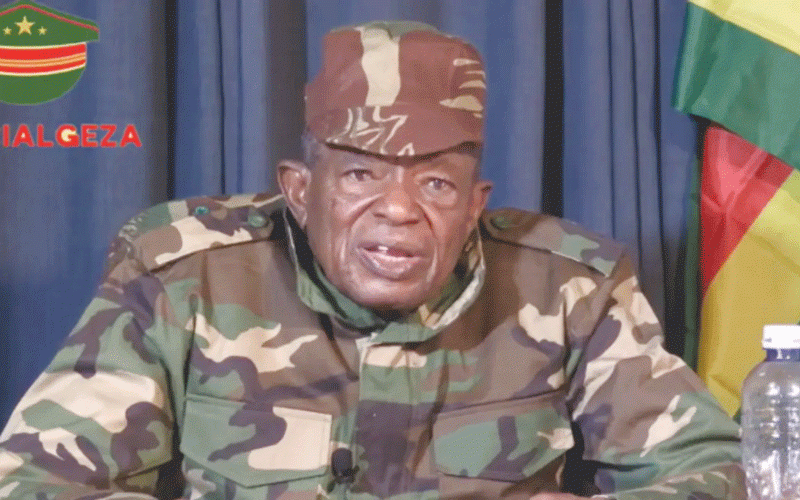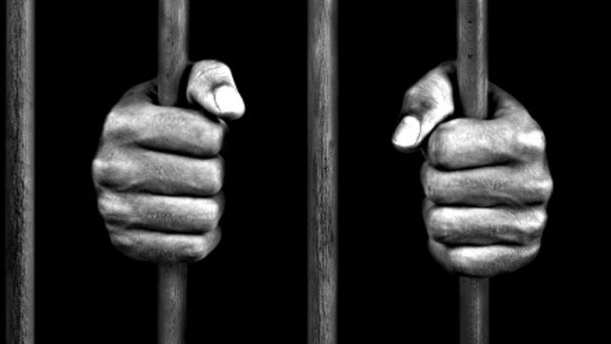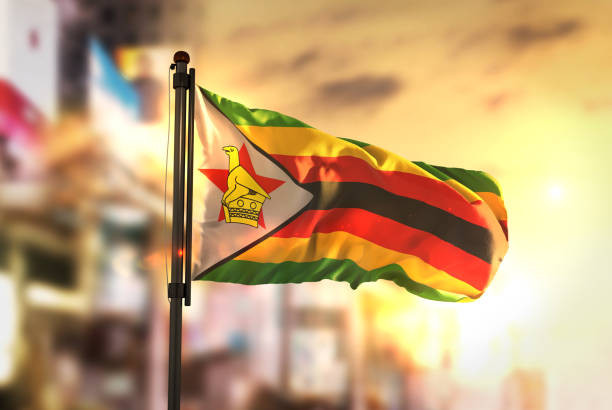By Sharon Hofisi
THE leader who carries off the remarks by the late President Mugabe will likely win the 2023 elections in Zimbabwe. The leader who does not let the Mugabe decision affect him at a personal level will surely win the next elections and this is no simulated prophecy.
As a deeper thinker, I am a distiller by nature; an ambivert and that is all about my natural sensibilities. I have been working on my book, The Missing Middle Citizens and it is not too early to talk about it yet.
All I can say is I am writing something about the influence of personality politics in Zimbabwe, turning the camera inward on personalities within the systems or political clubs like Zanu PF, Triple C (Citizens Coalition for Change) and so forth.
I do not want to steal the fire from any politician, but I wish to contribute to the democratic culture in Zimbabwe. My reviews, interviews and analytics have appeared in private and public media outlets before.
Today’s review is a give and take, home or away. I am focusing on Mugabe’s quality of predictive intelligence as a quality President Emmerson Mnangagwa, Nelson Chamisa or any other serious presidential contender must not ignore at the moment.
Keep Reading
- Chamisa under fire over US$120K donation
- Mavhunga puts DeMbare into Chibuku quarterfinals
- Pension funds bet on Cabora Bassa oilfields
- Councils defy govt fire tender directive
On the hidden pain of Mugabe’s voting decision in 2018 is an honest assessment that doubled as a reading list on leadership endorsement discourses. Sadly, Mugabe’s heart seemed to represent the remarks of a lonely hunter.
Instead of being the best reviewed political statement from the ruling party and those outside politics, Zanu PF; MDC-T/A and Triple C seem to dangerously approach the unspeakable through the diminutive, whatever that means to careful readers.
Mugabe’s statement represents what it means to be a politically mature Presidential candidate or aspiring President. It may not even feature in the new wave of social media comics or verbiage and trending political reels.
But one voter in 2018 created a spoiled ballot paper when he/she thought the election management body had forgotten to include Mugabe’s name.
Even the February movement’s celebrations did not value the need for some procession from Zvimba to celebrate Mugabe’s heroics. Oh Lord, have mercy!
Perhaps no one wanted to raise skeletons or associate with the politics of labelling that has dominated Zimbabwe of late! Those in politics and those who assume the non-political tag did not talk about Mugabe’s family during the 21 February Day celebrations.
While the day remains on the calendar of national events and is steeped in the minds of ordinary Zimbabweans, it has assumed some meaning in politics for reasons I donot know but cannot ignore. Of course power lies elsewhere and some in this age are still afraid of the politics of labelling or kuzororana madhaka?
And one party’s leader has already acknowledged that he was listening to his presidential rival’s speech? The meaning of political statements, as might be expected, is always far from simple. But let me blaze through the field of predictive intelligence to address basic questions about the nature of presidential leadership beyond 2023 as well as the difficult puzzles in Mugabe’s famous ‘I will not vote for so and so in 2018.’
It is uncontroversial to say that Mugabe’s leadership analysis is the key to the manner in which Mnangagwa or Chamisa can be elected as Zimbabwe’s 2023 president.
The methodological tools introduced in Mugabe’s words concretely show that individual Presidential candidates may fail but their larger systems may win using the Mugabe personality test.
The Parliamentary and Presidential votes in 2018 provide the starting point on why legislators had more votes than their President.
Mugabe’s statement wasnot such thing we associate with language-games in petty politics. It was a transformative extension of predictive intelligence we all know from the village if we had frequented such wisdom libraries like our golden grandmothers.
The underlying idea in this article is thus: what analytic philosophy could come out of Mugabe’s protest statement? Beyond the arc of old age emotions and deposed leader’s bitterness, Mugabe was writing a significant part of Zimbabwe’s history in order to uncover paths to the future that the 2017 military-assisted transition had covered up.
This is tied to his rejection of a symbol of the military-assisted transition on the one hand and the rejection of the philosophy of ‘restoring legacy’ on the other. While no one may sing the Pitch Perfect, ‘you gonna miss me when I’m gone’ publicly for Mugabe, one can easily sense a tension between Mugabe-Mnangagwa styles of restoring economic or political order on the streets.
While Mugabe may not be around today, the post-Mugabe model of voting will again be of contemporary significance in 2023. This is one of the issues I will single out as qua thinker and language user for discussion of Mnangagwa or Chamisa’s likely triumphs in the 2023 elections.
As I hope to continue showing, the Mugabe conception of leadership qualities is a very important contribution to contemporary political methodological discussions on serious presidential candidates in Zimbabwe.
It offers a much more truthful and experiential Mugabe than many of the caricatures that had dominated his lengthy rule. Mugabe the language statesman; Mugabe the anti-liberal ironist; Mugabe the truth-breaker and conservative leader and so on!
His political remarks were deeper; more classroom-like or teacher-based; and a pleasure to think with when one wants to seriously analyse politics of maturity or immaturity in Zimbabwe.
Barring any supervening act or some smart interpretation of Zimbabwe’s marshal constitution, Zimbabwe’s current electoral cycle will end with the harmonised elections in 2023.
There was a time, only two decades after Zimbabwe’s independence, when the whole incumbent President was not the subject of intensified strategic or legitimacy attention from erstwhile presidents.
Opposition or alternative voices, whichever way one puts it, were seen, or believed to be seen, in non-Presidential terms. We hardly read of the late Canaan Banana’s de-legitimation of Mugabe’s leadership qualities.
Even at a political party systems level, the other political parties between 1980 to around 1998 were largely presenting a parliamentary than presidential approach to politicking.
The most valuable piece of state governance was a parliamentary seat with Mugabe’s executive presidency somewhat immortalised. What then came towards the turn of the century was a formidable alternative to Zanu PF, the united Movement for Democratic Change (MDC).
Those were the days and the aftermath of failed economic policies such as Economic structural adjustment Programme (Esap), a cosmetic term that was employed to sway the economic truth that Zimbabwe had adopted Brettonwoods-imposed economic policies popularly known as structural adjustment programmes (Saps).
Worse still, Zimbabwe never attained the highly-indebted poor country (HIPC) status. Today, by comparison, the humpty dumpty economics in Zimbabwe only serve to show beyond things that have fallen apart, that concrete measures beyond long economic equations should be taken to ‘correct’ the Saps debacle.
Today, Zimbabwean economists live with what Gideon Gono (former Reserve Bank of Zimbabwe governor) once called ‘the casino economy’.
What is worrisome is that the ruling party and the opposition have largely ignored the casino economy as a tool for predictive intelligence in transforming Zimbabwe.
Since 2009, Zimbabwe adopted several economic blueprints that borrowed from each other but yawningly lacked effective implementation to turn around the economy.
While the Government of National Unity has been credited for ending impulsive buying and the ‘bacossi’ lifestyle, it never scored significant gains in ending philanthropic corporate responsibility.
The result was that foreign companies, including those that benefited under Harare’s Look East Policy did not even attempt to introduce political philanthropy to improve the lives of Zimbabwe’s poor workers and their families.
In that case, politicians focused on the liquid decency of the multicurrency era. Nothing significant was done to empower Zimbabwe to focus on solid investments such as real estate.
Hofisi is a deep thinker and introduced the ‘thinking without the box’ model of transformative justice in his doctoral thesis.
While the opposition MDC had benefited from a sympathy vote following the 2008 June Presidential runoff elections that became a run-over, several of the politicians in the GNU turned out to forget the need to distinguish ‘governing’ from ‘ruling’ Zimbabwe.
While Zanu PF campaigned across Zimbabwe, it seemed something was lost in the other camp and the 2013 elections came. With the mantra ‘(Robert) Mugabe is old’ gaining momentum, the 2017 political change came.
With a bit of hindsight, the Government of National Unity (GNU) players ought to have embraced the 2017 political change with a caveat: either a power-sharing arrangement or appreciation of a collective responsibility to end the Mugabe era.
All went very well until the August 1 election crisis erupted and many players in the 2017 political change realised they owned very little, except their bitter recourse to hate politics.
Outside interest was never appreciated. Analogously, village wisdom from our elders shows that those who sit at the negotiating table are never part of the menu.
While legitimacy issues and stuff took Zimbabwe towards hate speech and emergency of political unpalatable labels such as ‘our thing/chinhu chedu; varakashi/destroyers; chachedu/it’s our time; or you cannot rig the economy,’ predictive intelligence never took over the entire political sector.
No one took Mugabe’s political statement seriously. At old age, Mugabe had created a state of panic when he said he would not vote for his former political party. This was no old age politics. One thing people didnot seem to understand was that Mugabe made a press conference, (was it?), a day before the 2018 elections.
He didnot castigate Zanu PF but said I will not vote for X-personality because I donot see Y-qualities. Read otherwise, he was saying I will vote for Y-personality because I am seeing P-qualities.
And the reason why about 600 000 presidential votes were lost is easy to get: Members of Parliament got 600 000 combined votes than the president.
Unless you do reverse predictive engineering, the likelihood that the same politics of numbers will be repeated in this election cycle ranges from high to very high.
Zanu PF needs to convince that the over-half a million votes that their president lost werenot reflective of a protest vote. If they do, they can win a landslide victory.
Similarly, the rebranded Triple C (Citizens Coalition for Change) is to win, it needs to manage Mugabe’s predictive intelligence pragmatically beyond focus on hate speech.
It seems the Mugabe day is on the calendar of celebrations but Zanu PF and Triple C didnot celebrate it as ‘Mugabe Day.’ The reason for not doing so is a political one- if the current President of Zanu PF and Triple C ignore Mugabe’s statement as some old age emotional arc they ignore it at their own personality peril.
This is the real issue beyond categorical mistakes such as those that focus on bussing people to rallies; ritualising party names; resorting to comical and hate politics.
Winning 2023 elections isnot about road blocks or evading such roadblocks; it is about predictive intelligence. Triple C’s agenda was the MDC-T/A but roadblocks made the Zimbabwe Grounds rally a success because a war of party legacy was given some national tone.
Similarly, the Triple C is focusing on politics of labelling personalities and not targeting Zanu PF as a political party. Let me sign off analogously by tapping from the village predictive intelligence of our elders.
We are where we are as a nation because we have failed the village test and create emotional arcs based on hate or violence trajectories, speech by speech.
How do we do that? We describe, in very factual, almost scientific way, the world of personality politics. Every now and then, one leader would slot in a few intimate details about ‘listening’ to their rival, something alien to politics but reminds us that predictive intelligence is absent.
This is actually very fun political article to write. I have never taken on the voice of a somewhat direct (not attack) analysis before. Sitting with my golden grandparents, they would always look up to the sky and see a passing cloud, ‘hore’ in Shona.
They will confidently say, ‘nhasi inozhakana, pedzai ruhekeri urwo chimbichimbi/it will rain today, finish off your tasks quickly.’ Their social statement was sometimes comparable to the shadow of the passing cloud/mumvuri wegore, which we mystically shout with, ‘Mwari adarika/God has passed by.’
The village elders’ sage counsel stemmed from observed knowledge systems, but told from the perspective of exhorting the young generation to unite.
No process, very intuitive. They interpreted events and seasonal changes as they came; which wasnot necessarily predictable. I donot really know how they did what they did. There’s no real method, it all happened on a very village level.
Political parties in Zimbabwe need to take predictive intelligence seriously, if they harbour any chances of winning the elections. A seemingly eternal question is drawn from the remarks by the late and former President Robert Mugabe.
Whether he said he would vote the opposition under Nelson Chamisa or that he wouldnot vote anyone from Zanu PF, his predictive intelligence bears significantly on the outcome of the 2023 elections.
A public or private compromise between Mugabe and Zanu PF has not been shown to have been reached and the matter of managing the conflict between incumbent rationality and political party rebranding remains.
The Mugabe statement is an exclamation point in the legitimation of any party that competes with Zanu PF. It symbolises the termination of the revolutionary party’s great power epoch of social engineering, and also the definitive endpoint of Mugabe’s successors of they do not play their cards wisely.
In a country that symbolises a ‘house of (stone) cards’ the influence of personality politics will definitely influence the outcome of the 2023 elections.
The political party that faithfully presents and discusses the issue of declarative attitudes to a leadership trajectory will win the 2023 election.
A central question Zanu PF or the Triple C party should ask is about leadership- to what? Should a political party, which in this case contains many separate components, be managed by different authorities?
When the Constitutional Amendments failed to remove the running mate clause, it meant that the issues of succession are settled. Any party in government can avoid leadership crisis easily without worrying about the leadership crisis that Zimbabwe witnessed in 2017.
I see this layer as a palimpsest, where various layers of players remain visible. Zimbabwe’s soft coup in 2017 takes us to another question: is pure evil possible?
When Immanuel Kant spoke about the moral evil inherent in humans, he is not being comical. Those who use the politics of numbers should be attentive to the phrase, ‘do not underestimate fools in their numbers.’
When I was in form one, I liked history just because of three words with I read backwards, ‘People Making History.’ I struggled to understand why my history teacher wasnot letting the class read the book backwards to mean, ‘history makes people.’
What am I saying? The veil of ignorance is slowly fading away. It is not a time to focus on hate speech or petty politics. Both Zanu PF and Triple C should be mindful of the impact of predictive intelligence in shaping Zimbabwean politics.
Around 1998, some two scholars wrote that if MDC were to give Zanu PF 15 years to renew its ideology then they MDC would perish. This was ignored by the united MDC and splinter groups remained.
The MDC was warned not to take people from civil society and put them at the helm of politics. This was again ignored. Those at the helm ignored the Mugabe clauses in the 2000 Constitutional Commission Draft.
And the effect: Mugabe was allowed to use land reform as a renewal tool. The MDC split because of the disagreements relating to the senatorial elections.
While the bloodbath that was witnessed in the June Presidential run-off in 2008 led to a government of national unity, Zanu PF finally got the chance to consolidate its power.
And the rest is history until the MDC itself regarded the 2017 military-assisted transition as a ‘collective decision’ by Zimbabweans. The domestic and international community could thus not see the removal of Mugabe as a coup in the legal sense.
Convenient and morning-after-cum-politicised approaches were used such as ‘couplite, soft, bedroom, guardian, stockholder, ideological coup together with other petty analytical references.
In all this, Mugabe’s predictive analysis was seen from the very early years of independence. In one instance, he referred to the need to ‘bury head in the sand’ something that referred to forgiveness and letting go.
In some instance he referred to ‘moments of madness’ to describe springboard events such as Matabeleland and Midlands disturbances.
In other he would again point to the landslide victory by the late Morgan Tsvangirayi when he referred to 73% or so. All this brings us to the fact that of Mnangagwa or Chamisa decide to be disingenuous and ignore the Mugabe remarks, then the election outcome will continue to show layers of petty politics, which Mugabe monumentally predicted.
- Hofisi (PhD) is a deep thinker and introduced the ‘thinking without the box’ model of transformative justice in his doctoral thesis.





